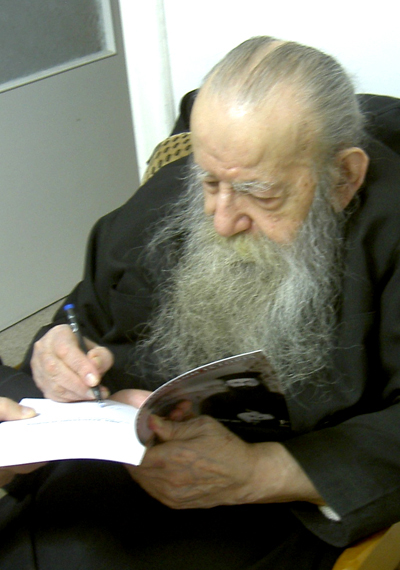St.Theophan the Recluse
It reached my ears that, as it seems, you consider my sermons very strict and believe that today no one should think this way, no one should be living this way and therefore, no one should be teaching this way. “Times have changed!”
How glad I was to hear this. This means that you listen carefully to what I say, and not only do you listen, but you are also willing to abide by it. What more could we hope for, we who preach as we were ordered and as much we were ordered?
Despite all this, in no way can I agree with your opinion. I even consider it my duty to comment on it and to correct it, since – even though it perhaps goes against your desire and conviction – it comes from something sinful, as though Christianity could alter its doctrines, its canons, its sanctifying ceremonies to answer to the spirit of each age and adjust itself to the changing tastes of the sons of this century, as though it could add or subtract something.
Yet, it is not so. Christianity must remain eternally unchanging, in no way being dependent on or guided by the spirit of each age. Instead, Christianity is meant to govern and direct the spirit of the age for anyone who obeys its teachings. To convince you of this, I will put forward some thoughts for you to consider.
Some said that my teaching is strict. First of all, my teaching is not my own, nor it should be. In this sacred office nobody should, nor even can, preach his own teaching. If I or someone else ever dare to do so, you can put us outside the Church.
We preach the teachings of our Lord, God and Saviour Jesus Christ, of the holy Apostles, and the Holy Church, which is guided by the Holy Spirit. At the same time, we make sure to do everything possible to keep these teachings whole and inviolate in your minds and hearts. Every thought we present and every word we use, we do so very carefully, so as not to overshadow this brilliant and divine teaching in any way. Nobody can act differently.
...a single raising of your mind to God, and a single humble genuflexion to His glory and in His honor has infinitely more value than all the treasures of the world... --St Nicodemos and Theophan the Recluse (Unseen Warfare: Chapter 20)
How glad I was to hear this. This means that you listen carefully to what I say, and not only do you listen, but you are also willing to abide by it. What more could we hope for, we who preach as we were ordered and as much we were ordered?
Despite all this, in no way can I agree with your opinion. I even consider it my duty to comment on it and to correct it, since – even though it perhaps goes against your desire and conviction – it comes from something sinful, as though Christianity could alter its doctrines, its canons, its sanctifying ceremonies to answer to the spirit of each age and adjust itself to the changing tastes of the sons of this century, as though it could add or subtract something.
Yet, it is not so. Christianity must remain eternally unchanging, in no way being dependent on or guided by the spirit of each age. Instead, Christianity is meant to govern and direct the spirit of the age for anyone who obeys its teachings. To convince you of this, I will put forward some thoughts for you to consider.
Some said that my teaching is strict. First of all, my teaching is not my own, nor it should be. In this sacred office nobody should, nor even can, preach his own teaching. If I or someone else ever dare to do so, you can put us outside the Church.
We preach the teachings of our Lord, God and Saviour Jesus Christ, of the holy Apostles, and the Holy Church, which is guided by the Holy Spirit. At the same time, we make sure to do everything possible to keep these teachings whole and inviolate in your minds and hearts. Every thought we present and every word we use, we do so very carefully, so as not to overshadow this brilliant and divine teaching in any way. Nobody can act differently.
...a single raising of your mind to God, and a single humble genuflexion to His glory and in His honor has infinitely more value than all the treasures of the world... --St Nicodemos and Theophan the Recluse (Unseen Warfare: Chapter 20)



